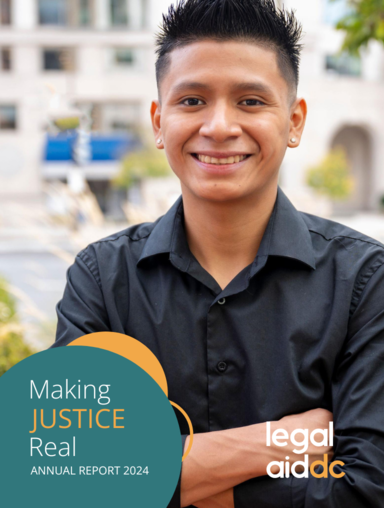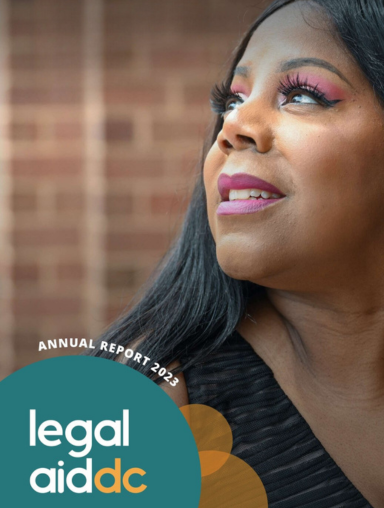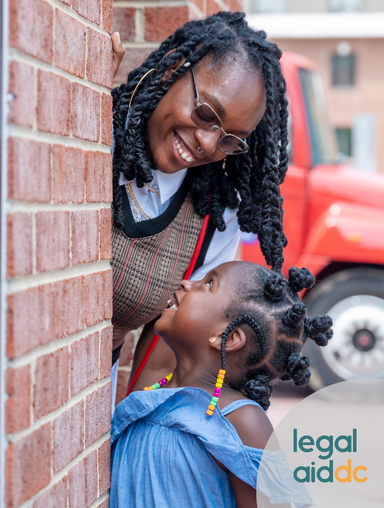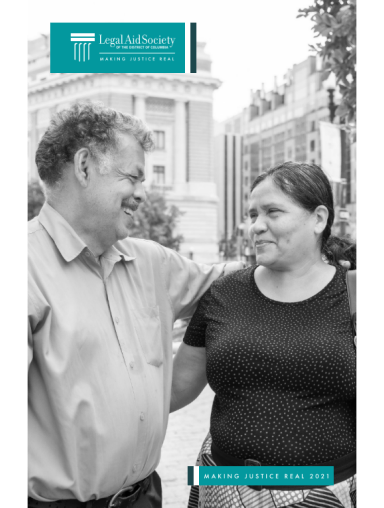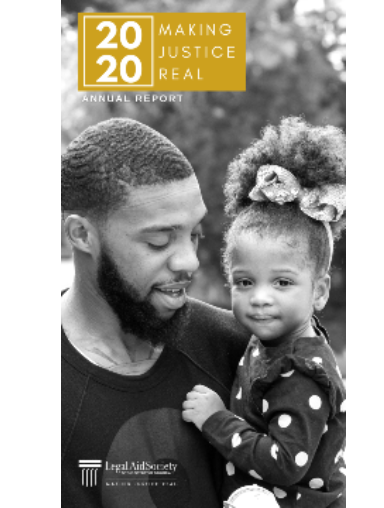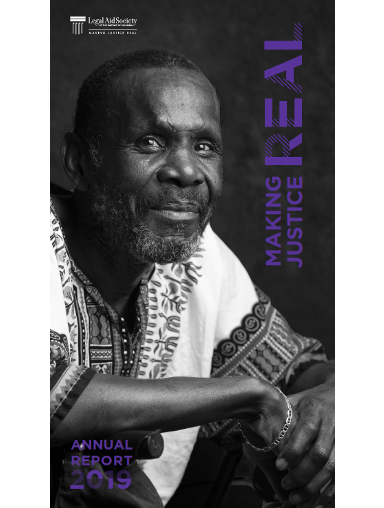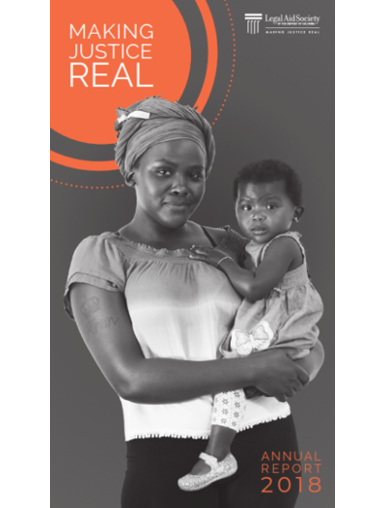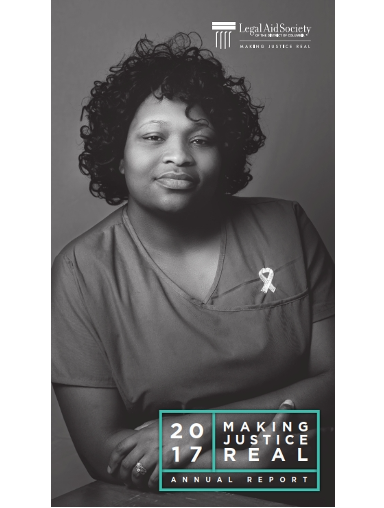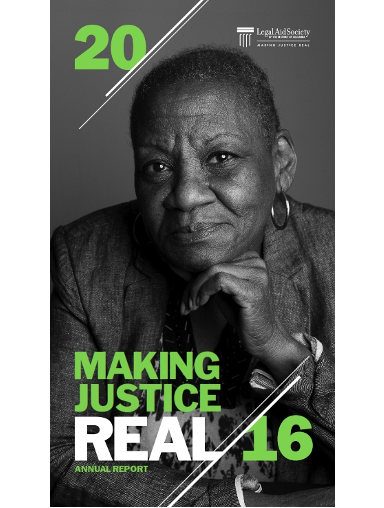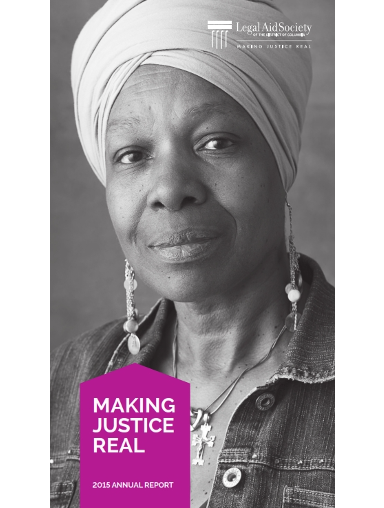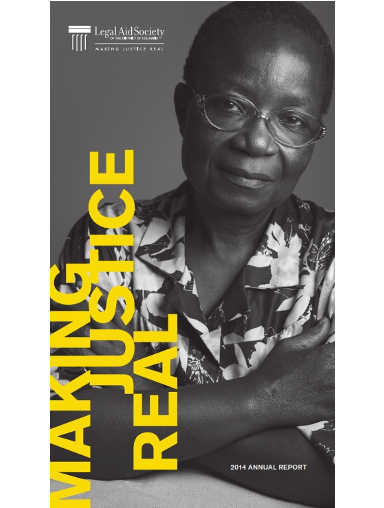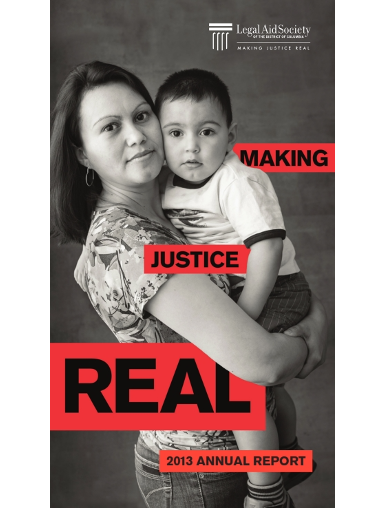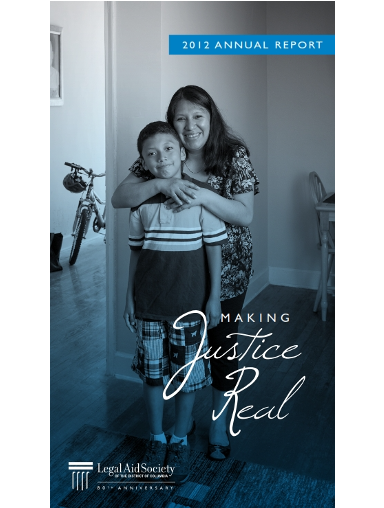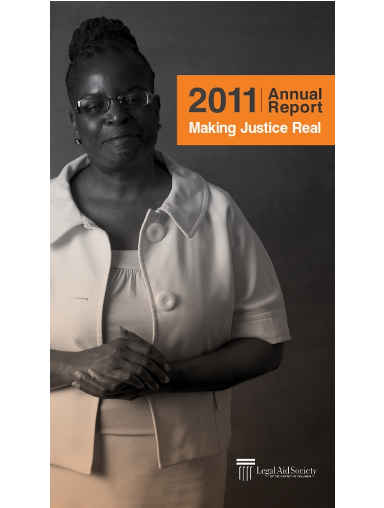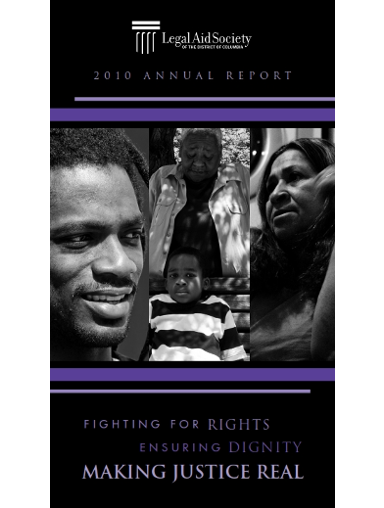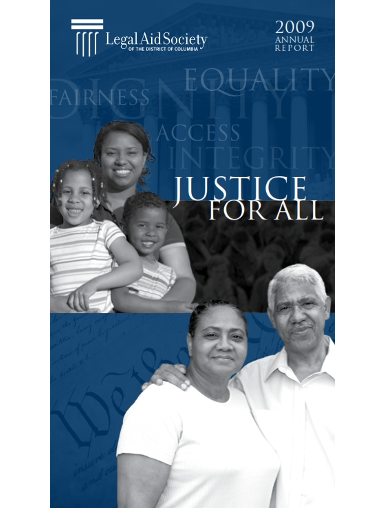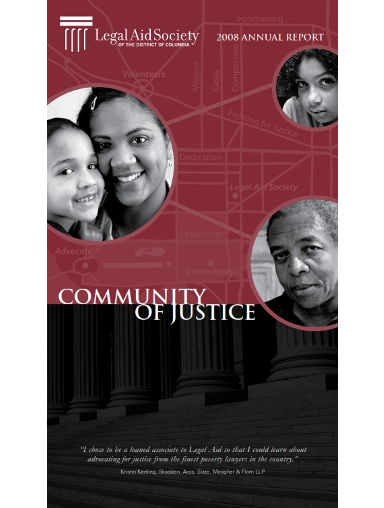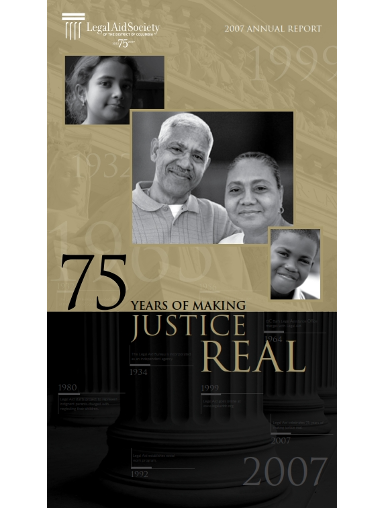Annual Reports
We're extremely proud of Legal Aid DC's growth in 2024 and the way that our staff have been able to help so many more of our neighbors who are navigating life-changing legal obstacles. This year brought the expansion of our Immigration Law Unit, strong advocacy work on behalf of tenants and homeowners, our first pardon clinic, and much more. With Legal Aid at the strongest in our 92-year history, we're ready to face whatever challenges lie ahead in 2025.
A combination of economic factors and the ending of pandemic-era protections lead to a significant increase in the need for legal assistance in the District in 2023. With the backing of thousands of supporters and alongside our community partners, Legal Aid DC answered the call. We served 10% more people in 2023 than in 2022, while also launching our new Community Lawyering Project to bring Legal Aid lawyers and staff directly into communities where we can help address legal problems before they turn into crises. Thank you to all our supporters and partners, to Legal Aid’s indefatigable staff, and especially to our clients, who put their trust in us every day.
Our clients continue to inspire us in 2022. They often are facing extremely difficult circumstances when they meet us. Whether they are facing the loss of a home, struggling to navigate the public benefits system, or trying to secure custody of their child, their legal situations are challenging. However, our clients are more than the sum of their legal problems. Their optimism and commitment to overcoming obstacles continues to inspire us in all of our work.
The COVID-19 pandemic, now entering its third year, has laid bare the racial, social, and systemic inequities that have always existed in our community. Viruses aren’t racist, yet 88% of the DC residents who have lost their lives to COVID are Black or Hispanic.
2020 has been a trying year for all of us. But it has been particularly horrific for many of our Black friends and neighbors. COVID-19 has killed Black Americans at a higher rate than any other group, and the murders of George Floyd and many others at the hands of police has once again demonstrated the impact of state violence on Black lives.
More than 31,000 eviction cases were brought in DC in 2018 alone. About 9 in 10 DC residents sued for eviction lack legal representation. That’s especially tragic because compared to unrepresented tenants, tenants represented by counsel from Legal Aid and partnering organizations through our path-breaking Housing Right to Counsel Project are eight times less likely to have a judgment for eviction entered against them.
It has been quite a year for our city and our country. At times it seems as if we are becoming more divided every day. The economy is booming, yet nearly half of children growing up east of the Anacostia River live in poverty. Beautiful new apartment buildings are rising in much of the District, while many poor residents lack heat in winter. DC is home to some of the best new chefs and restaurants in the country, but too many families struggle to put food on the table.
2017 Legal Aid Turns 85
Legal Aid’s 45 attorneys and five paralegals provided full representation, advice, or brief services in over 3,500 matters last year, focusing on many of the biggest barriers that prevent D.C. residents from overcoming poverty. These barriers were highlighted by the 2016 Community Listening Project, where researchers interviewed more than 700 D.C. residents living in poverty to learn more about the challenges they face.
D.C. residents should not need a lawyer to help them obtain the safety net benefits they desperately need and to which they are entitled under the law. Unfortunately, far too frequently, obtaining counsel is an imperative step toward receiving benefits. Every year, our Public Benefits Unit—the largest in the District—plays a critical role in helping D.C. residents obtain necessary lifeline benefits, while also serving as a watchdog when, as is far too often the case, the government fails to provide those benefits fairly and efficiently.
As supporters of Legal Aid know, income inequality remains an intractable problem in the Nation’s capital. USA Today recently reported that income inequality in the District is higher than in any state in the country. Other sources find that the District has the fourth highest level of income inequality among America’s largest cities. D.C. is one of the most economically successful and one of the most economically unequal cities in the nation.
Legal Aid clients often come to us facing a multitude of issues: a grandmother needing help with her prescription drug plan may also be threatened by abusive debt collectors; a survivor of domestic violence who needs to get to safety may also need help obtaining unemployment benefits. With 37 lawyers in five units and five loaned associates on rotation from area law firms, along with numerous volunteer and pro bono attorneys, Legal Aid endeavors to provide holistic services to all of our clients.
This has been an exciting year at Legal Aid. We established a new community office in Southwest D.C.; a new housing project focused on improving conditions for D.C.’s low-income tenants; a new holistic legal services project serving domestic violence survivors that expands our services to clients in crisis; and much more.
It is inspiring to think about Legal Aid’s founders recognizing that, in the face of crushing poverty, unemployment, and income disparity, it was vital to provide high-quality legal advocacy to persons living in poverty – lawyering that focuses not just on affecting individual families but on changing the systems which affect our clients’ lives. In 2012, Legal Aid is doing all it can to honor this legacy by fighting to make justice real, in individual and systemic ways, for our client community.
What has been a scary time for lawyers in Northwest has been a downright terrifying time to be a home health care worker or an unemployed construction worker in Southeast. As a result of the economic downturn, nearly 10% of D.C. residents are unemployed – and the figures are nearly twice that in Wards 7 and 8. People living in poverty encounter the legal system at every turn, and often where the stakes are very high.
Justice is not self-executing. There are many ingredients to ensuring that everyone, regardless of income or wealth, receives a fair result in a legal dispute. It is necessary to have good laws and effective courts and administrative tribunals. But it is also essential to have lawyers. Legal Aid is here to help. We work to ensure that our clients’ rights are respected, that their voices are heard and that they are treated with dignity. Day in and day out,
our lawyers and staff are there to Make Justice Real.
2009 Justice for All
Equal justice is at the core of what Legal Aid is and does. When a Legal Aid lawyer helps a family forced into court in an eviction action to save their housing, she is doing the work of justice. When a Legal Aid lawyer helps a woman to escape domestic violence, he is doing the work of justice. When a Legal Aid lawyer helps victims of mortgage fraud to keep their homes, or seniors to obtain improperly denied benefits, or a family to secure a custody or child support order from the courts, she is doing the work of justice. Legal Aid lawyers are doing the work of justice whenever they help a person who would otherwise go unrepresented to access the legal system and achieve a fair result.
2008 Community of Justice
Legal Aid has moved many of its services into communities of highly concentrated poverty. While we continue to serve clients in our main office in downtown Washington, in order to reduce transportation and other barriers, we have opened three offices at locations east of the Anacostia River and an office in the Landlord and Tenant Branch of the Superior Court. All of our community offices are partnerships with other legal and social services organizations. We have located them not only in our clients’ neighborhoods, but in places that clients already come to seek other services. Our presence in the community allows us to help individuals and families that may lack the resources to travel downtown.
Legal Aid is the law firm for clients who cannot afford a lawyer. Our staff and volunteers work each day to make the justice system work. For 75 years, with the support of the legal community, we have ensured that the promise of equal justice for all is kept. With continued support, we will sustain and strengthen this commitment for the years to come.

